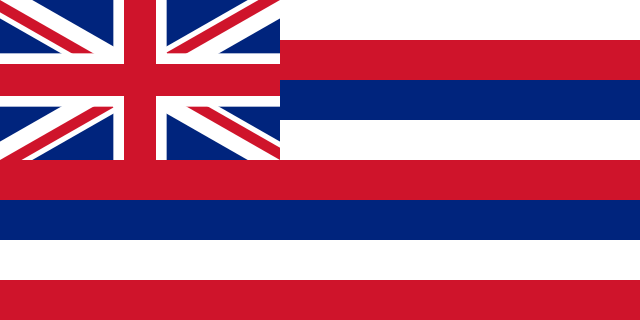Hawaii Has Been Named the ‘Most Corrupt State’ in America
By Hawaii Free Press

In a recent evaluation conducted by the Institute for Corruption Studies at Illinois State University, Hawaii, known as the Aloha State, has once again claimed the rather unwelcome title of the most corrupt in the United States.
At the forefront of this unsettling distinction is Honolulu, Hawaii’s state capital, which stands out with the highest percentage of public corruption convictions per capita, as revealed in the comprehensive report covering the years 1976 to 2024. Other major cities like Washington, D.C., Los Angeles, New York, and Chicago also find their place on this regrettable list….
fostering a culture where loyalty, partiality, and personal connections often take precedence over honesty, transparency, and responsibility…heavily reliant on tourism and military spending, Hawaii becomes susceptible to external influences. Foreign investors, lobbyists, and contractors exploit the state’s resources by collaborating with local politicians and officials who accept bribes, kickbacks, and campaign contributions in exchange for support and influence….
The dominance of the Democratic Party in Hawaii’s state legislature since 1954 has resulted in a lack of political diversity, reducing checks and balances and enabling power abuse….
Major corruption instances, including the Bishop Estate scandal, problems with the Honolulu rail project, and the Kealoha Scandal, vividly highlight corruption’s pervasive nature across all levels of Hawaii’s government.
Hawaii Has Been Named the Most Corrupt State in America!
In a recent evaluation conducted by the Institute for Corruption Studies at Illinois State University, Hawaii, known as the Aloha State, has once again claimed the rather unwelcome title of the most corrupt city in the United States.
At the forefront of this unsettling distinction is Honolulu, Hawaii’s largest state capital, which stands out with the highest percentage of public corruption convictions per capita, as revealed in the comprehensive report covering the years 1976 to 2024. Other major cities like Washington, D.C., Los Angeles, New York, and Chicago also find their place on this regrettable list.
he report’s author, economist Oguzhan Dincer, who also directs the Institute for Corruption Studies, identifies several factors contributing to Hawaii’s elevated corruption levels:
Historical Legacy: Hawaii’s history of colonization, annexation, and statehood has left a legacy of political and economic inequality, fostering a culture where loyalty, partiality, and personal connections often take precedence over honesty, transparency, and responsibility.
Geographic Vulnerability: Situated remotely and heavily reliant on tourism and military spending, Hawaii becomes susceptible to external influences. Foreign investors, lobbyists, and contractors exploit the state’s resources by collaborating with local politicians and officials who accept bribes, kickbacks, and campaign contributions in exchange for support and influence.
Institutional Weakness: The dominance of the Democratic Party in Hawaii’s state legislature since 1954 has resulted in a lack of political diversity, reducing checks and balances and enabling power abuse. The state’s underfunded legal system faces challenges in effectively prosecuting and penalizing corruption cases.
Illustrative Examples of Corruption in Hawaii
Corruption is pervasive across all branches and levels of government in Hawaii, as exemplified by notable instances:
Kealoha Scandal: The conviction of former Honolulu Police Chief Louis Kealoha and his wife Katherine in 2019 exposed a conspiracy and obstruction of justice. Their plot involved framing a relative for mailbox theft to conceal financial deception and theft. Several law enforcement officers and officials faced charges related to power abuse, record-keeping fraud, evidence tampering, lying to investigators, and civil rights violations.
Rail Project: Initiated in 2005 to alleviate traffic congestion, the Honolulu rail project encountered mismanagement, corruption, and cost overruns. Originally projected at $5.3 billion, the project’s cost skyrocketed to $12.4 billion due to continuous delays. Federal investigations and audits revealed fraud, waste, misuse, and conflicts of interest involving contractors, consultants, officials, and politicians.
Bishop Estate: Founded in 1887 as a private school system and trust, the Kamehameha Schools (formerly Bishop Estate) faced scandals involving alleged violations of fiduciary duties, self-dealing, nepotism, and fund mismanagement among its trustees. With assets exceeding $10 billion, the estate’s troubles underscore systemic corruption challenges in Hawaii.
Conclusion
Honolulu, Hawaii, emerges as the most corrupt city in the United States, according to the Institute for Corruption Studies. Economist Oguzhan Dincer’s analysis, spanning convictions for public corruption per capita from 1976 to 2024, attributes this designation to historical injustices, geographic susceptibility, and institutional flaws, notably the prolonged dominance of the Democratic Party. Major corruption instances, including the Bishop Estate scandal, problems with the Honolulu rail project, and the Kealoha Scandal, vividly highlight corruption’s pervasive nature across all levels of Hawaii’s government.
EDITORS NOTE: This Hawaii Free Press column is republished with permission. ©All rights reserved.

This article is courtesy of DrRichSwier.com, an online community of citizen journalists, academics, subject matter experts, and activists to express the principles of limited government and personal liberty to the public, to policy makers, and to political activists. Please visit DrRichSwier.com for more great content.

